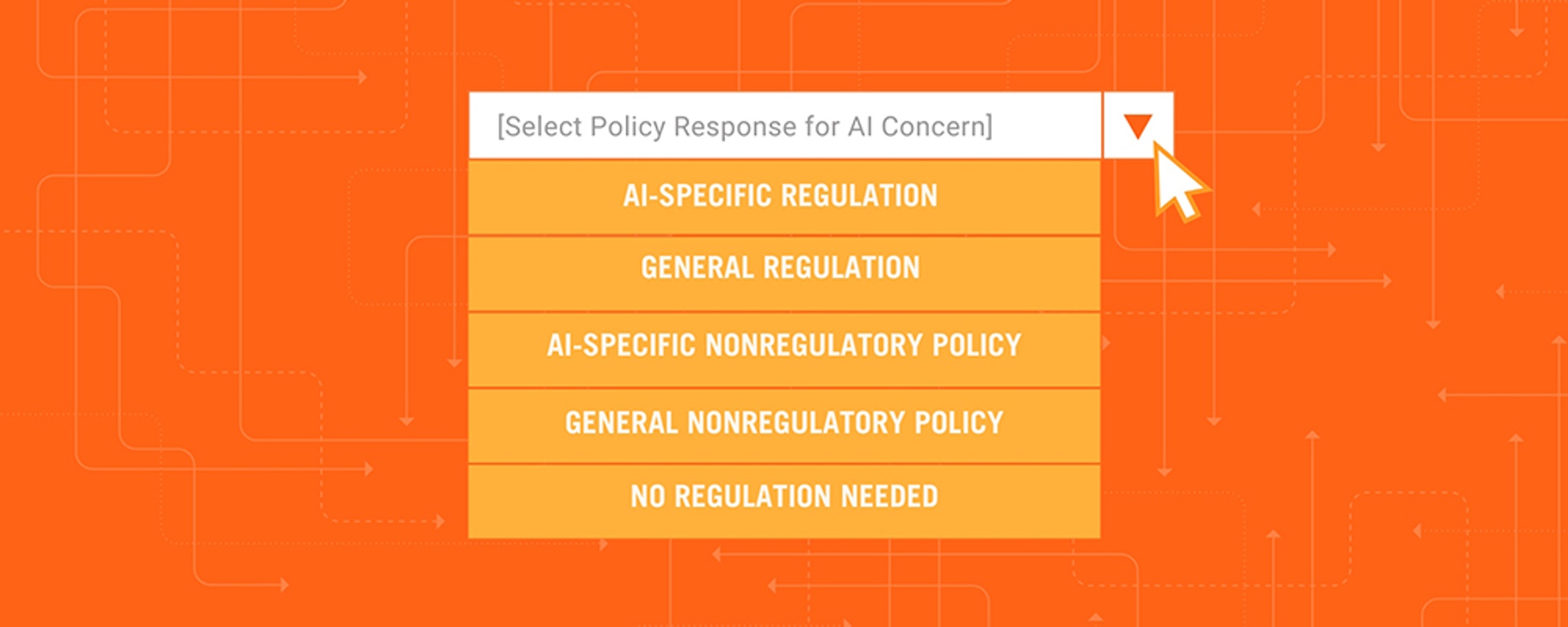Artificial Intelligence
Navigate forward to interact with the calendar and select a date. Press the question mark key to get the keyboard shortcuts for changing dates.
Navigate backward to interact with the calendar and select a date. Press the question mark key to get the keyboard shortcuts for changing dates.
As every sector of the global economy and nearly every facet of modern society undergo digital transformation, ITIF advocates for policies that spur not just the development of IT innovations, but more importantly their adoption and use throughout the economy. In the area of artificial intelligence, ITIF studies issues related to competitiveness, governance, ethics, development, and adoption.

Vice President and Director, Center for Data Innovation
Information Technology and Innovation Foundation
Read BioFeatured
More Publications and Events
August 27, 2025|Presentations
Using AI to Focus Agenda and Priorities for the Fiscal Year
Eli Clemens speaks about how the Consumer Product Safety Commission (CPSC) can use AI to focus its mission at the CPSC's FY26/FY27 Priorities Hearing.
June 23, 2025|Press Releases
UK Industrial Strategy Signals Renewed Focus on Innovation, Digital Skills, and Pro-Growth Regulation, Says Center for Data Innovation
In response to the UK government’s release of its new Industrial Strategy and Digital and Technologies Sector Plan, the Center for Data Innovation released the following statement.
June 17, 2025|Presentations
AI and Automation: The New Era of Safety and Compliance Management
Eli Clemens speaks as a panelist at the 2025 North America Product Safety Training Workshop hosted by the International Consumer Product Health and Safety Organization.
June 13, 2025|Presentations
AI and the Architecture of Modern Economies and Societies
Daniel Castro speaks on artificial intelligence and its influence on economies and societies at the GLOBSEC Forum 2025 in Prague.
June 11, 2025|Events
Should Policymakers Regulate Human-AI Relationships?
Watch now for a discussion on the potential benefits and risks of AI companions, what the early research says about this emerging technology, and how policymakers can support responsible innovation.
June 10, 2025|Press Releases
The FDA Is Showing How to Deliver on the Promise of AI, Says ITIF
Following the FDA's announcement to unleash AI and harness big data as core new priorities, ITIF released the following statement from Senior Policy Manager Hodan Omaar and Vice President for Global Innovation Policy Stephen Ezell.
June 6, 2025|Testimonies & Filings
Comments to the European Commission Regarding Future Cloud and AI Policies in the EU
It is critical that, in tackling both these issues, the EU avoids engaging in digital protectionism, which would harm European competitiveness further.
June 6, 2025|Testimonies & Filings
Comments to the European Commission Regarding Its “Apply AI Strategy”
The Center welcomes the European Commission’s ambition to accelerate the uptake of AI across the economy and public sector as part of its broader AI continent action plan.
June 5, 2025|Op-Eds & Contributed Articles
No, AI Robots Won’t Take All Our Jobs
Instead, they will boost productivity, lower prices and spur the evolution of the labor market.
June 5, 2025|Blogs
Why America Must Embrace Job-Killing Technology
Call me heartless, but nothing would make me happier than seeing 50 percent of American jobs automated over the next decade or so. Automation and displacement equal progress.







